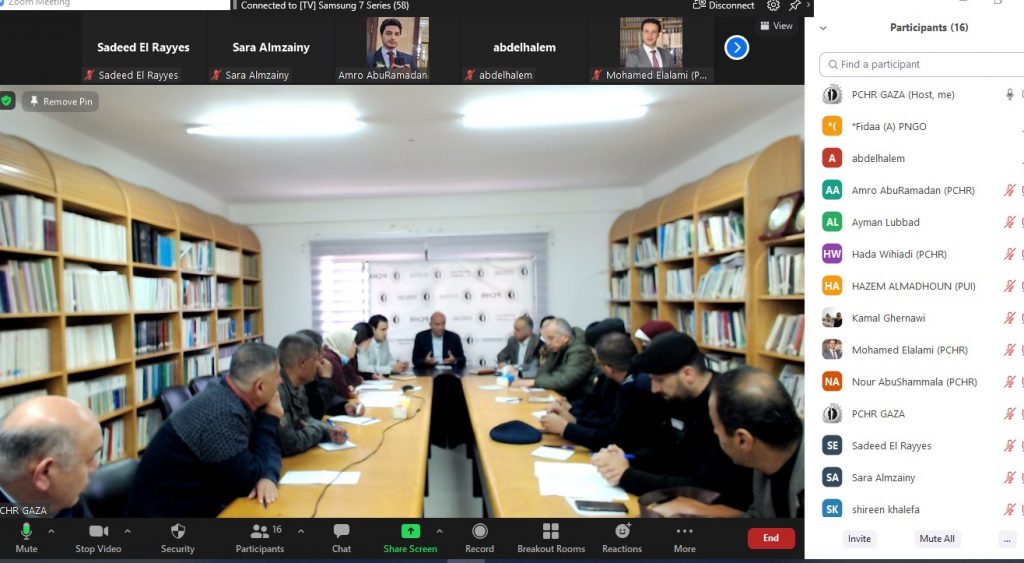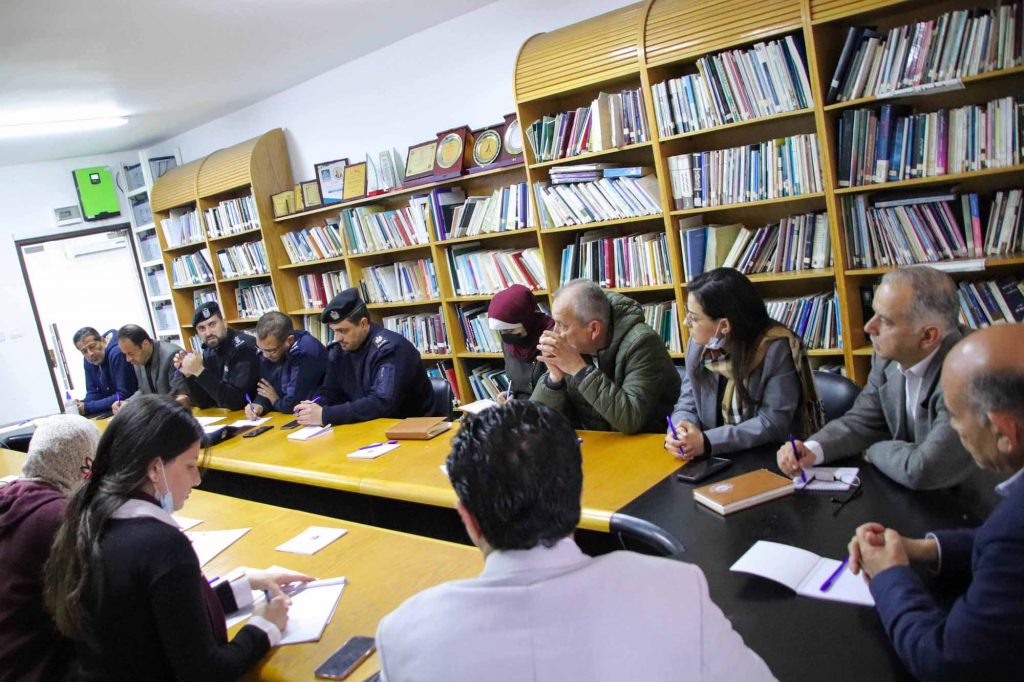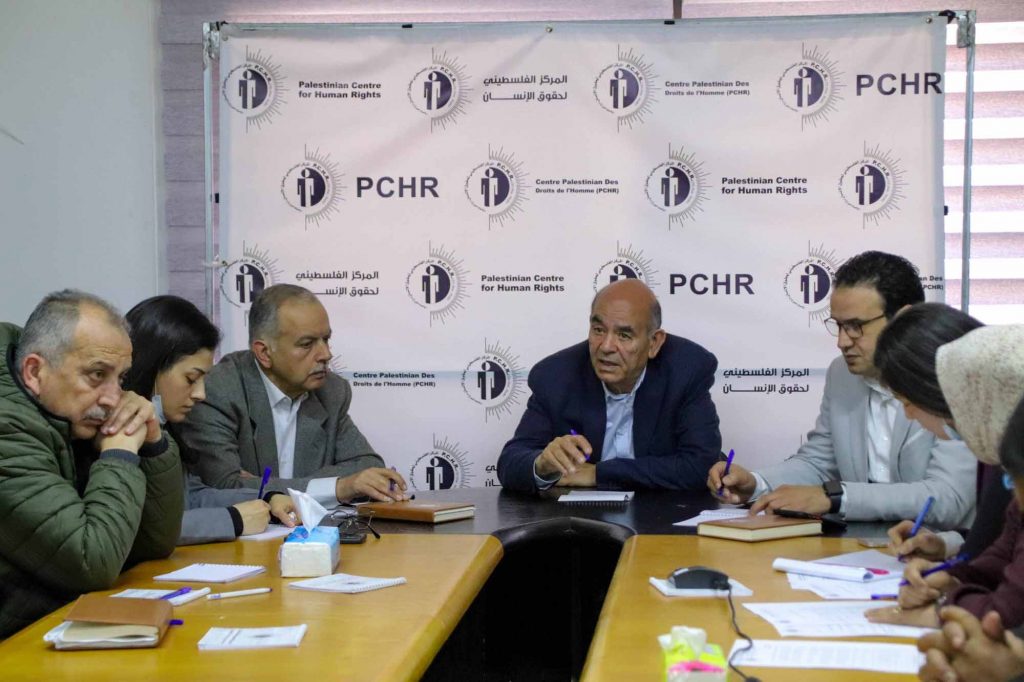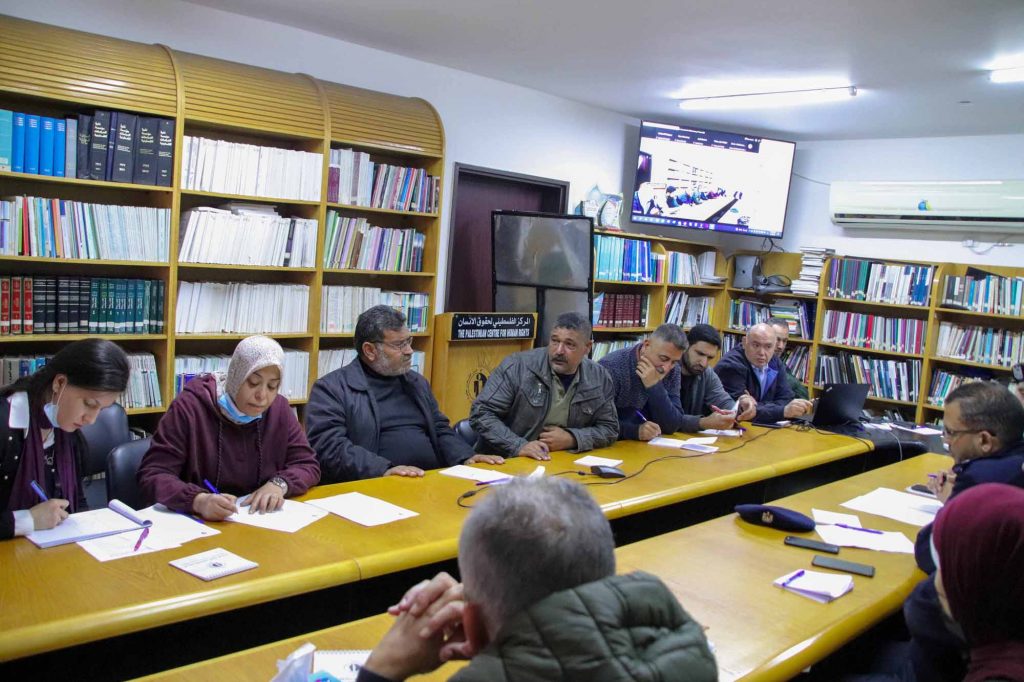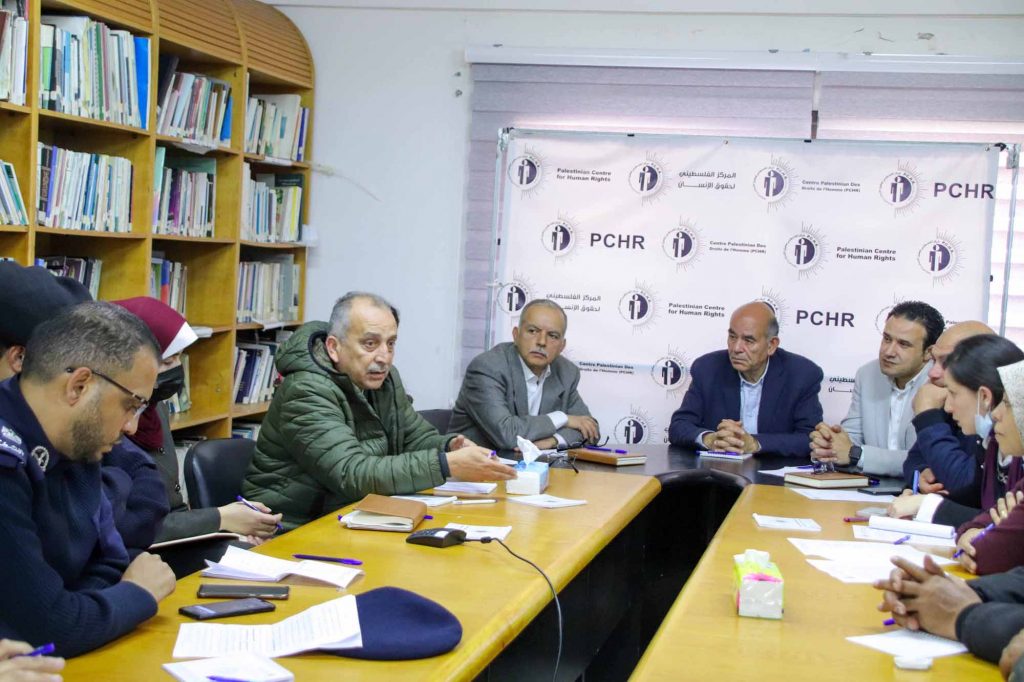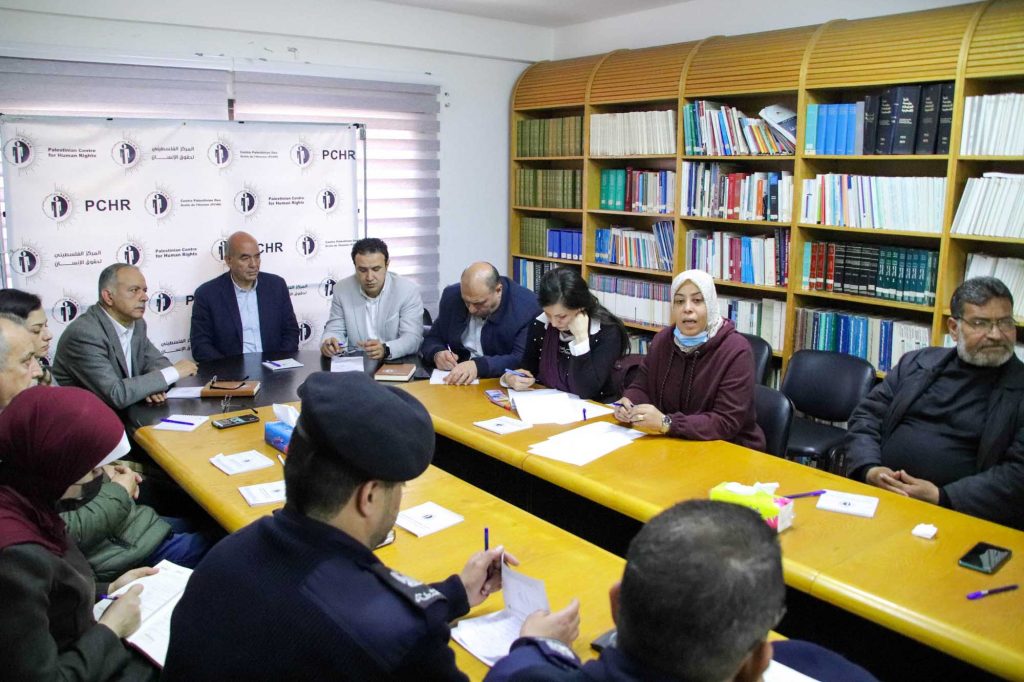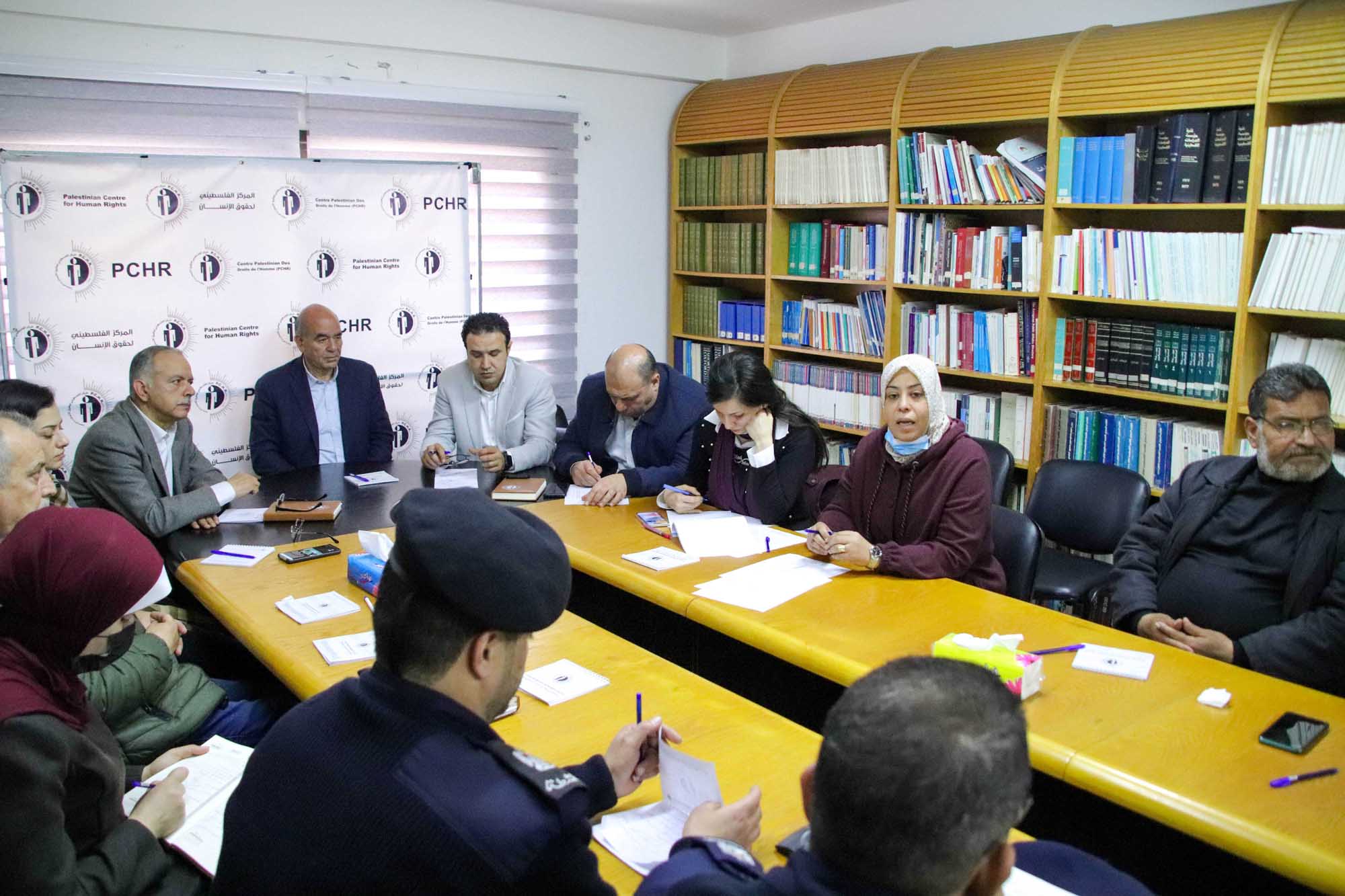
Ref: 11/2022
Date: 4 April 2022
On Monday, 4 April 2022, the Palestinian Centre for Huan Rights organized a workshop on the occasion of the International Mine Awareness Day, titled “Israeli Occupation’s Explosive Remnants’ Impact on Civilian Lives.” An expert group took part in the workshop, including legal experts, members of the Explosives Ordnance Engineering division, as well as farmers and fishermen, as the latter are frequently subjected to the dangers of explosive war remnants.
On its agenda was the reality of explosive war remnants in the Gaza Strip since 2008, a perpetual crime committed by the Israeli occupation forces (IOF) whose danger continues to haunt civilians’ lives even after the conclusion of military operations. As IOF launch dozens of unexploded weapons that pose a continuous threat to civilians.
Dr. Ahlam al-Aqra, Deputy Director of PCHR’s Legal Aid Unit, managed the session, and highlighted the intent of the workshop was to shed light on the dangers of unexploded weapons, as they are simply ticking bombs that may go off at any moment; threatening civilian lives in the Gaza Strip.
Mr. Raji Sourani, PCHR Director, opened the session with emphasis on the importance of its theme as a highly-sensitive topic for its consequences on civilian lives, especially following each Israeli military offensive against the Gaza Strip. He added that the matter is extremely critical as it pertains to unexploded weapons that are both heavy in weight and large in size, some weigh a ton, and others are phosphorous bombs that IOF used in its 2008/2009 military operation on Gaza. These bombs have not been removed to date; a true humanitarian catastrophe that poses a real threat to civilians’ lives.
Sourani added, “At PCHR, we commemorate this day by raising awareness on the dangers of these explosive objects, emphasizing PCHR’s appreciation of the police and security services’ efforts in Gaza when dealing with the military operations’ waste in the Gaza Strip within the available means, especially that 22 of the explosive engineering staff members died on duty within these efforts.”
Lieutenant Mohammed Meqdad, Head of the Safety and Security Department at the Explosives Ordnance Engineering (EOD), highlighted the most prominent obstacles and challenges facing them during their work in the field since 2008/2009 and until now, including lack of access by the specialized teams to these explosive objects as it requires high-tech devices to locate them accurately. Also, the explosive engineering teams lack the necessary personal protective equipment, including shields, masks, specialized transportation vehicles, and other relevant precision equipment. Moreover, the Israeli occupation authorities do not allow the import of equipment and devices necessary for their work.
Meqdad also said that they are in pressing need for specialized international experts to train their staff as the last training they received by the United Nations Mine Action Service (UNMAS) was in 2013.
Meqdad said that since 2010 the EOD has collected around 65 unexploded phosphorus canisters and dealt with them through primitive means due to lack of advanced techniques and devices as there is still danger that these canisters might explode in any moment due to the interaction of phosphor with the containers and subjecting them to erosion.
Major Mish’al al-Beltaji, representative of the Police Ombudsman Office, addressed the impact of explosive materials on civilians’ lives and emphasized that these remnants are the deadly legacy of the occupying power in the occupied Palestinian territory (oPt) and that their existence poses an ongoing threat. Additionally, these remnants affect infrastructure, groundwater and agricultural areas, and hinder reconstruction. Al-Beltaji stressed that the Protocol V of the Convention on Certain Conventional Weapons on Explosive Remnants of War has imposed an obligation onto the disputing States parties to dispose of such remnants and failure to meet such an obligation is considered an international crime.
For his part, Zakaria Baker, an activist in fishing sector, discussed obstacles facing fishermen at work in the sea and emphasized that the practice of fishing differed significantly after 2008, because IOF periodically dump waste and shells into seawater, which clearly and tangibly affected the fishing rate. Also, IOF launch drones towards Palestinian fishing boats and fire toxic gas canisters, affecting fishermen and fishing wealth.
Monther Abu Jarad, a farmer from northern Gaza Strip, affirmed that there are many dangers that farmers face while plowing their lands; in many cases they found unexploded bombs and they could not deal with them due to the lack of awareness. He emphasized that these unexploded remnants pose a real threat to their lives while practicing their agricultural work.
At the end of the seminar, participants stressed the importance of the United Nations Mine Action Service’s (UNMAS) participation in such meetings, as the competent international body in this field. The participants offered several recommendations, prominently:
Conduct awareness campaigns about the dangers of remnants of war, through radio and T.V and awareness training courses, especially for fishermen and farmers.
Find a mechanism for the transmission of technical information to the United Nations and its explosive device disposal units in order to facilitate the disposal of the remnants.
Allow the entry of UN explosives experts and necessary capabilities and equipment into the Gaza Strip to deal with and destroy the remnants of munitions from the latest Israeli offensive.
Put pressure on Israel to fulfill its legal responsibility towards the Gaza Strip population and protect them and allow the entry of necessary equipment and the need to locate the unexploded objects in order to reduce the risk of inflicting more casualties.
